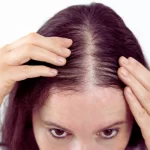Hair loss can be an emotionally challenging experience, affecting self-esteem and confidence. While genetics, hormonal changes, and medical conditions are common causes, stress is often an underestimated trigger for hair thinning and shedding. At Radiance Hair Transplant Center, we help patients understand how stress affects hair and offer solutions for healthy hair restoration.
How Stress Affects Hair Growth
Hair growth is a complex biological process influenced by nutrition, hormones, and the health of hair follicles. Chronic stress disrupts this balance, leading to various types of hair loss:
Telogen Effluvium
The most common stress-related hair loss
Stress pushes hair follicles into the resting (telogen) phase prematurely
Results in diffuse thinning across the scalp, usually 2–3 months after a stressful event
Alopecia Areata
An autoimmune condition often triggered by severe stress
The body’s immune system attacks hair follicles, causing patchy bald spots
Hair may regrow naturally, but medical intervention can accelerate recovery
Trichotillomania
A psychological condition where stress causes compulsive hair pulling
Can lead to noticeable thinning or bald patches
Requires behavioral therapy and medical guidance for hair restoration
Why Managing Stress Matters for Hair Health
Chronic stress affects hair in multiple ways:
Hormonal Imbalance: Stress increases cortisol levels, which can disrupt the natural hair growth cycle.
Nutrient Depletion: Stress may reduce appetite or lead to poor nutrition, weakening hair follicles.
Inflammation: Prolonged stress triggers inflammation in the scalp, potentially affecting hair follicle health.
By managing stress effectively, you can reduce hair loss and improve the outcomes of hair restoration treatments.
Tips to Reduce Stress-Related Hair Loss
Maintain a Balanced Diet – Nutrient-rich foods like leafy greens, nuts, and proteins strengthen hair.
Exercise Regularly – Physical activity lowers stress hormones and improves blood circulation to the scalp.
Practice Mindfulness – Meditation, deep breathing, or yoga can significantly reduce chronic stress.
Prioritize Sleep – Hair follicles regenerate during sleep, making rest essential for hair health.
Seek Professional Support – Dermatologists or hair specialists can recommend treatments such as PRP therapy or hair transplants to restore lost hair.
Hair Restoration Solutions at Radiance Hair Transplant Center
At Radiance Hair Transplant Center, we understand that stress-related hair loss can impact confidence. Our team offers advanced treatments including:
PRP Therapy: Uses platelet-rich plasma to stimulate dormant hair follicles.
FUE and FUT Hair Transplants: Move healthy hair follicles to thinning areas for natural growth.
Personalized Care Plans: Address underlying causes of hair loss and improve long-term results.
With the right treatment and stress management strategies, hair can regrow naturally, restoring both appearance and self-esteem.
Conclusion
Stress is a silent contributor to hair loss, but understanding its impact empowers you to take proactive steps. Combining lifestyle changes with professional hair restoration treatments ensures healthier, thicker, and more resilient hair.
At Radiance Hair Transplant Center, we provide tailored solutions to help you regain not just your hair, but your confidence.







